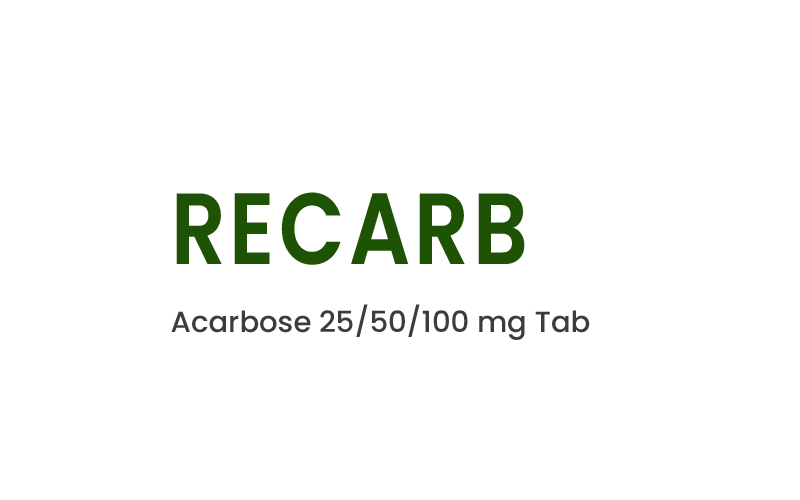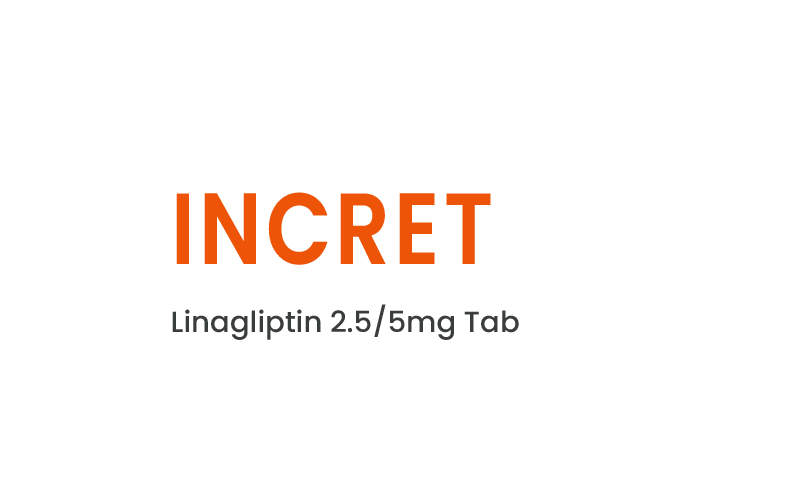Recent Search Keywords
- info@magnuspharma.com.np
- marketing@magnuspharma.com.np
- (+977) 01-5366878 / 4249929
RECARB

RECARB
Management of glycemic control in patients with type 2 diabetes mellitus.
Acarbose is a complex oligosaccharide that competitively and reversibly inhibits both pancreatic alpha-amylase and membrane-bound alpha-glucosidases - of the alpha-glucosidases, inhibitory potency appears to follow a rank order of glucoamylase > sucrase > maltase > isomaltase.7 By preventing the metabolism and subsequent absorption of dietary carbohydrates, acarbose reduces postprandial blood glucose and insulin levels.
The oral bioavailability of acarbose is extremely minimal, with less than 1-2% of orally administered parent drug reaching the systemic circulation. As only 1-2% of an orally administered dose is absorbed into the circulation, acarbose is unlikely to be subject to clinically relevant protein binding. Acarbose is extensively metabolized within the gastrointestinal tract, primarily by intestinal bacteria and to a lesser extent by digestive enzymes, into at least 13 identified metabolites. In healthy volunteers, the plasma elimination half-life of acarbose is approximately 2 hours.
• Typical starting dosage: 25 mg taken three times per day with the first bite of each main meal. • Dosage increases: This dosage may be increased up to 100 mg taken three times per day with the first bite of each main meal.
Alu-alu strip of 10*10s
